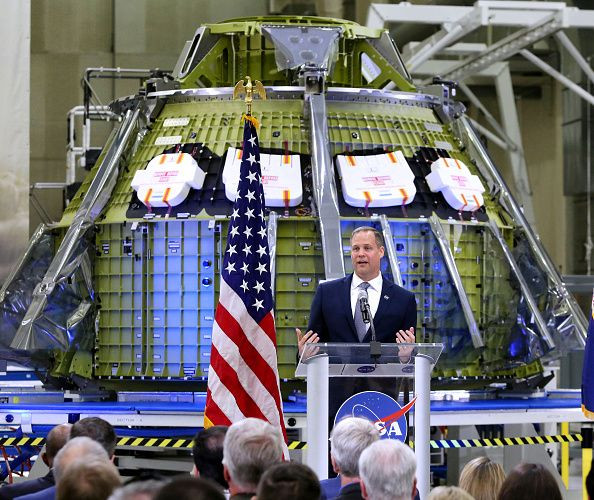NASA’s Goal Of Colonizing The Moon By 2028 Backed By The Trump Government

NASA is aiming for the Moon and the Trump administration is in support of it as NASA’s fiscal year 2020 budget reveals $21 billion worth of resources at the space agency's disposal.
Starting with a series of small commercial delivery missions to the Moon in 2018, NASA is now looking to put humans on the Earth’s natural satellite by 2028. The planned delivery missions will use new landers and robots before humans can go to the surface and explore it.
“We will go to the Moon in the next decade with innovative, new technologies and systems to explore more locations across the lunar surface than ever before. This time, when we go to the Moon, we will stay. We will use what we learn as we move forward to the Moon to take the next giant leap – sending astronauts to Mars," NASA Administrator Jim Bridenstine said in a press release.
The 2020 NASA budget is considered to be the "strongest" on record, showing as much as a six percent increase from the previous request. According to Bridenstine, this shows the high vote of confidence from the administration since the growth comes at a time when many parts of the federal government suffer from restricted resources.
The NASA administrator also said that the work that NASA has been doing on the Sun and the Earth would be beneficial to humanity for many years. The budget will help the agency create safer, greener and more efficient air travel. It will also support the research on transformative aeronautics technology.
Bridenstine did not forget, however, how the budget can also boost the agency’s partnership with commercial and international partners. A report from CNBC suggests that NASA is looking to engage with the private sector more and more in its new endeavors. It also aims to partner aggressively with the private sector to make all of its planned missions happen.
One of those partners is Elon Musk's SpaceX company. Bridenstine noted that it is now possible to launch "American astronauts on American rockets from American soil." Vadim Lukashevich, a Russian space expert, echoed the same thing previously, saying that SpaceX showed Roscosmos "who’s who." He went on to say that Musk has built the "ship of the future."
© Copyright IBTimes 2025. All rights reserved.





















